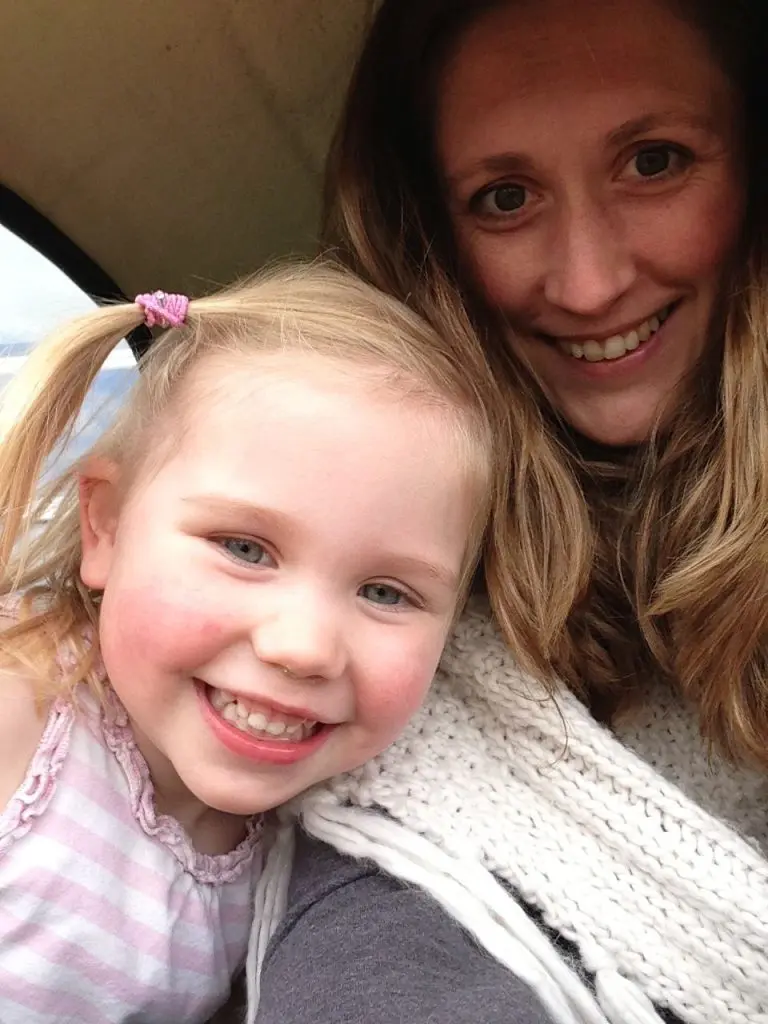WAY Widowed and Young Ambassador Emma shares her story and advice for other parents after supporting her daughter, Sophie, who was diagnosed with autism after her dad died.
For WAY Ambassador Emma and her teenage daughter Sophie, the last few years have been a challenge that they have learned to navigate together. Sophie was just six when her dad, Simon, died in 2016. A few years later, at 13, Sophie was diagnosed with autism after several years of struggling to cope with the death of her dad, compounded by the impact of the Covid lockdown.
“I feel like we’ve been through an evolution,” says Emma. “We had Covid, then everyone saying Sophie’s challenges related to trauma from her dad dying. Then the autism diagnosis at 13. She’s now worked out what her diagnosis means for her, and I’ve worked out what it means parenting her. We’ve got an agreement with school as to how she can best be educated and how she can hopefully thrive instead of just surviving. I feel like we’ve moved through to a place of hope for the first time since Simon died.”
A long road to understanding
Before her diagnosis, Sophie had been struggling with the transition to senior school. “In primary school she’d been popular, very independent. She lived in her own bubble. But when she got to senior school, it blew her mind,” says Emma, explaining that the transition from primary to senior school happened just after the Covid lockdown, which exacerbated Sophie’s discomfort.
“Sophie went from being the popular kid to being the odd kid,” says Emma. “She’d just get up and run out of class without permission. Initially school punished her because they thought she was behaving badly. Then, the moment I mentioned I was getting her diagnosed for autism, there was an about-turn.”
Emma explained that Sophie’s struggles to come to terms with her dad’s death added to the sense of emotional overwhelm, which led to school avoidance and difficulty managing demands. Her neurodivergence made it harder for her to adapt to the huge life change after her father died. She sometimes experienced sadness as physical exhaustion or a sense that she couldn’t cope, rather than being able to articulate how she feels. Social anxiety also made it harder for her to express emotions with peers, so grief could manifest as withdrawal or shutdown rather than tears or words.
Sophie is now 15 – and for the first time since she started senior school, she’s finally finding her place. “She’s made friends for the first time in five years,” says Emma. “It’s not perfect by any means, but this morning, when we faced some issues getting to school, we were laughing instead of shouting at each other. There are no fireworks any more. Everything we do, we do as a team now.”
Sophie’s progress has come on in leaps and bounds thanks in large part to the support of a counsellor arranged through school – a former NHS mental health nurse. But that is also paid for privately. “He’s been pivotal for Sophie,” says Emma. “But finances shouldn’t be a barrier for people to get the help they need.”


Emma’s tips for supporting a bereaved child with special educational needs:
1 Prioritise routine, stability and downtime over pushing through discomfort
Neurodivergent children often need predictability to feel safe, especially after a major loss. Take time out to decompress as a family, if necessary.
2 Allow children to process grief at their own pace without forcing traditional milestones
Grieving may look different – it might not include talking, crying or traditional “stages”. There is no blueprint – every child is unique.
3 Build compassionate curiosity
“Instead of reacting in frustration, ask: what’s really going on here?” says Emma. “It takes patience, but it’s so important.”
4 Seek specialist support as well as general grief counselling
An understanding of sensory and communication differences is vital to making therapy effective.
5 Create gentle connections to the person they’ve lost
For Sophie, this includes keeping small routines and places that remind her of her dad — like staying at the school he chose or joining the Combined Cadet Force, which reflects his military background. Sophie also created a deep attachment with one of the family’s horses, who has been her emotional anchor, as well as a connection to her father. These touchpoints give her comfort and continuity.
6 Model that it’s okay to struggle and to need accommodations
By showing your own vulnerability, you teach your child that needing help is normal.
7 Look after yourself as well as your child
You can’t pour from an empty cup, says Emma: “For the parents, it needs to come in two halves — how to look after you, and how to look after your child.”
8 Reach out – even if it’s just a small step
“I was scared to reach out for help at first,” says Emma. “I got in my own way because I didn’t want to upset anyone or thought others were worse off than me. But it’s really important to reach out for support.”

Finding support – and learning to ask for it
For a long time, Emma says she didn’t see that she needed help too. “I was so passionate about supporting Sophie, you just get on with it. I’ve also got another daughter too, so I was trying to treat them both equally in a world where everything evolved around Sophie’s needs.”
“Eventually I found a counsellor locally who said, ‘What about you?’ That’s when I realised maybe I needed help as well,” says Emma. “I’ve done EMDR therapy and tap in and out of talking therapy when I need it. But it’s all paid for – I’m fortunate that we have a military pension that’s enabled me to do this but it makes me really sad that other kids are born into this and need help too. If we had a physical problem, it would be free on the NHS. But because we need support mentally, it’s not there.”
Since Sophie’s diagnosis, Emma has also learned that she’s neurodivergent herself – she has been diagnosed with ADHD, although she feels she aligns more closely with autism. “I had to learn to live with it by ignoring it,” she says. “I went to boarding school, and I had to shut off from my feelings to fit in. My role now is advocating for Sophie so she can learn to live with it, not ignore it like I did.”
That compassion and understanding has become a cornerstone of their life together. “It’s about having compassionate curiosity,” says Emma. “That takes truckloads of patience – when you’re a working parent and you’re tired. Sometimes I take time out and tell Sophie it’s nothing to do with her – I’m just tired because I’m a solo parent. We call it decompression time, and we plan that into our lives.”
Emma has also found peer support through other widowed parents to be invaluable, particularly those with SEND children, who she’s found through the charity WAY Widowed and Young. “Sometimes what you need is to download, without any judgement,” she says.
Sometimes, it’s as simple as joining Sophie in doing what she loves. “Just joining your kid in their activity can be really calming,” says Emma. “Instead of being frustrated, find out ways to make things work. Screens have been my absolute saviour. The key is knowing what they’re watching. Sophie likes to watch the same programme over and over again – it’s her way of chilling.”
For Emma, it’s painful going back over some of the details of her journey with Sophie, but ultimately she wants to share a hopeful message with other parents of bereaved SEND children that, with huge amounts of patience and the right support around you, there is a way through this.
“Sometimes I wondered if I’d ever get to where I am now,” she admits. “I’ve parented in the most imperfect way possible. I’ve done things I’m not proud of – it’s really hard. You can’t have a rulebook or blueprint because every child is unique. But you can keep showing up with love.”

About WAY
The WAY Widowed and Young community offers a safe space to talk to other people (both with and without children) who understand how it feels to be widowed at a young age.
WAY has a subgroup for parents of children with Special Education Needs.
Find out how WAY can support you, if you’ve been widowed before your 51st birthday, at www.widowedandyoung.org.uk
Tips from Winston’s Wish
Read guidance from the Winston’s Wish bereavement specialists on supporting bereaved children with Special Educational Needs (SEND).


Going back to school following a bereavement: Tips from widowed parents
Our friends at the charity WAY Widowed and Young offer their advice on how they’ve navigated the back-to-school routine with their children following a bereavement.

SEND bereavement support
Winston’s Wish offers specialist bereavement support for children and young people (up to 25) with special educational needs and disabilities. Find out how to access support.


